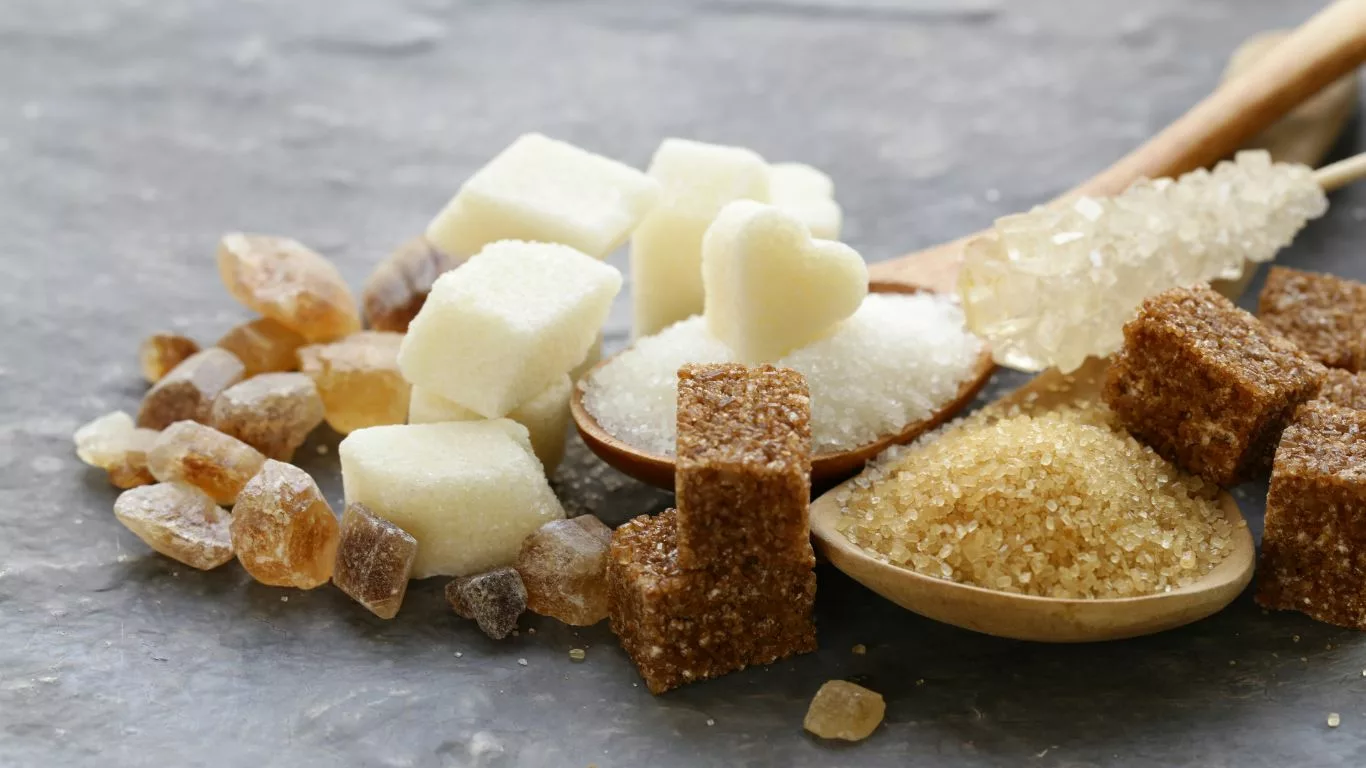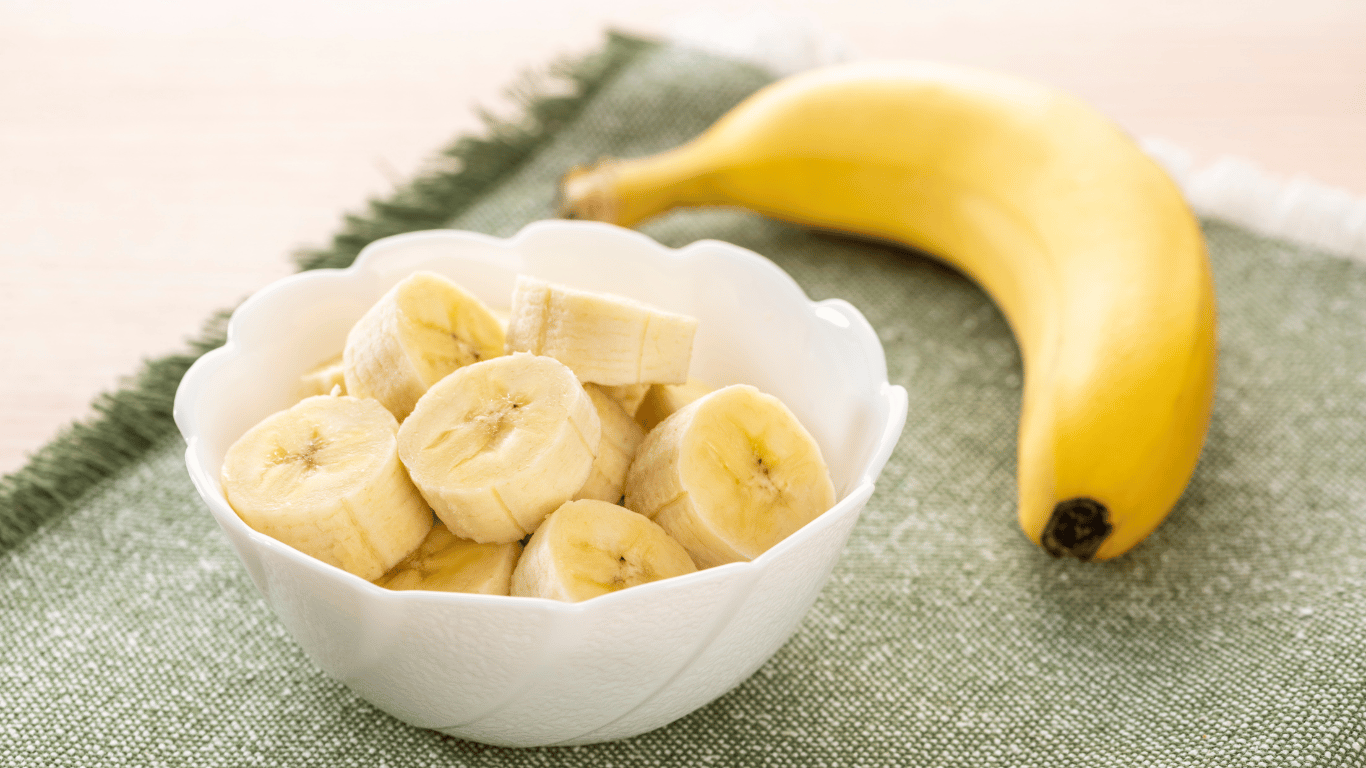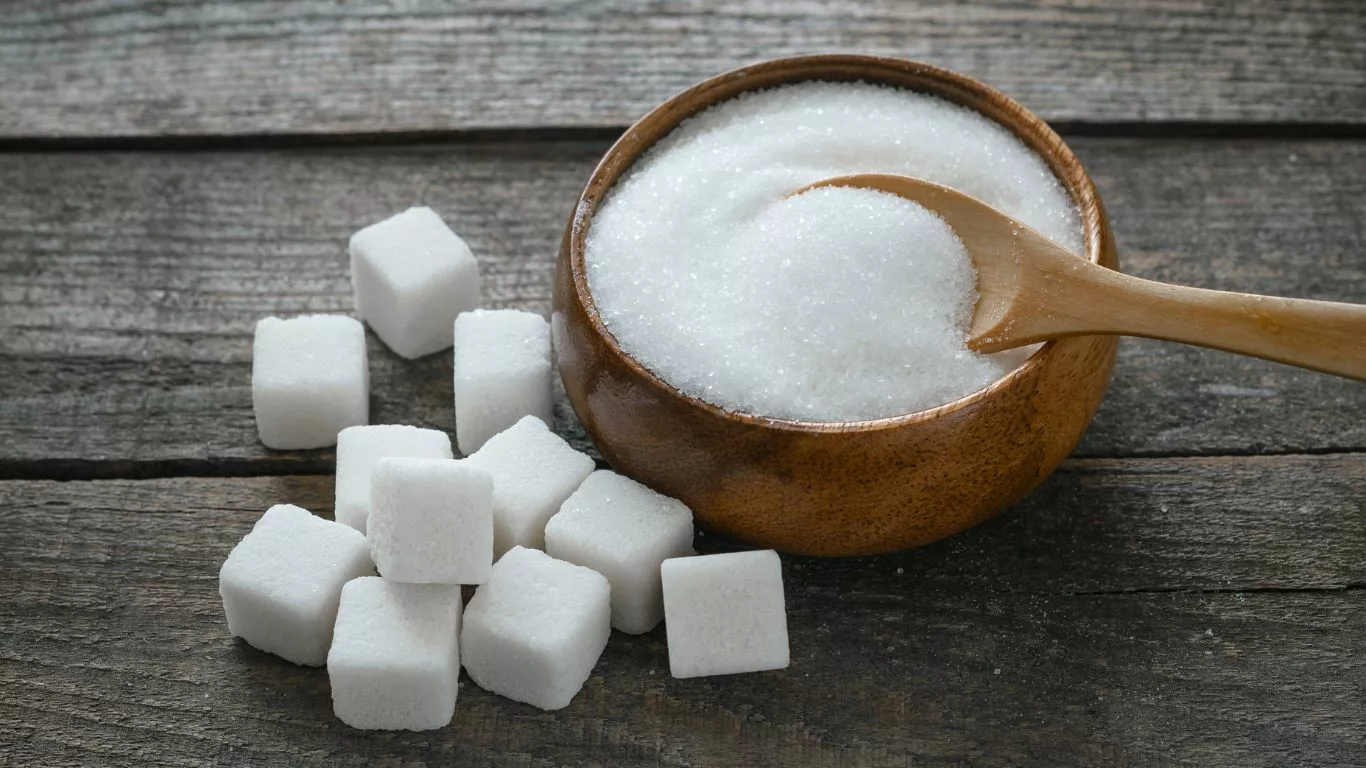Does Sugar Raise Blood Pressure? The Connection Explored
Introduction
High blood pressure, or hypertension, affects millions of people worldwide and is a significant risk factor for cardiovascular diseases. Alongside factors like diet and lifestyle, sugar consumption has become a subject of interest in relation to blood pressure. This article delves into the connection between sugar and blood pressure, examining scientific findings and offering practical tips to manage sugar intake and maintain a healthy blood pressure level.
Blood pressure is a critical physiological parameter that measures the force exerted by blood against the walls of arteries as the heart pumps it throughout the body. It is expressed with two values: systolic pressure (the top number) and diastolic pressure (the bottom number). A normal blood pressure reading typically hovers around 120/80 mmHg. However, consistently elevated blood pressure can lead to severe health complications such as heart disease, stroke, and kidney problems. Managing blood pressure is essential for overall well-being and longevity.
Understanding Blood Pressure
Blood pressure is a complex interplay between the heart’s pumping action, the elasticity of blood vessels, and the volume of blood circulating in the body. When the heart contracts, pushing blood into the arteries, it generates systolic pressure, reflecting the highest pressure in the arterial system. Between heartbeats, the heart relaxes, and the arterial pressure drops, resulting in diastolic pressure.
Several factors can influence blood pressure, including age, genetics, diet, physical activity, and stress. Hypertension occurs when the force of blood against arterial walls is consistently too high, placing extra strain on the heart and blood vessels.
To measure blood pressure accurately, a healthcare professional uses a sphygmomanometer, which consists of an inflatable cuff and a pressure gauge. The cuff is wrapped around the upper arm, and the healthcare provider inflates it to temporarily stop blood flow. Then, the pressure is slowly released, and the provider listens for two specific sounds using a stethoscope: the first sound is the systolic pressure, and the second sound is the diastolic pressure.
Understanding blood pressure and its contributing factors is crucial for comprehending the potential impact of sugar consumption on this vital physiological parameter.

Role of Sugar in Our Diet
Sugar is a type of carbohydrate that serves as an important energy source for the body. It comes in various forms, including glucose, fructose, sucrose, and lactose. Naturally, sugars are present in foods like fruits and dairy products, providing essential nutrients and fiber. On the other hand, added sugars are incorporated during food processing or preparation to enhance taste and extend shelf life.
Added sugars are ubiquitous in modern diets and can be found in a wide range of products, including soft drinks, candies, baked goods, cereals, and processed snacks. Unfortunately, excessive consumption of added sugars has become a prevailing issue, contributing to numerous health problems.
When sugars are consumed, they are broken down into glucose in the body, which is used as an immediate energy source. However, if not utilized for energy, excess glucose is stored as fat, leading to weight gain and potential health complications like obesity and type 2 diabetes.
Moreover, high sugar intake has been associated with an increased risk of heart disease, mainly due to its impact on factors like blood lipid levels and inflammation.
The link between sugar consumption and blood pressure has gained significant attention, as researchers seek to understand how dietary habits influence cardiovascular health.
Sugar and Blood Pressure Connection
Although the relationship between sugar intake and hypertension is not entirely understood, several research studies have explored the potential link between the two. Understanding the mechanisms by which sugar affects blood pressure can shed light on its impact on cardiovascular health.
The Link Between Sugar and Hypertension
Studies have indicated that diets high in added sugars may contribute to an increased risk of developing hypertension. The Framingham Heart Study, a renowned longitudinal research effort, found that individuals who consumed more than 74 grams of added sugar per day had a significantly higher risk of hypertension than those with lower sugar intake.
One potential explanation for this connection is the impact of excessive sugar consumption on body weight. High sugar diets are associated with weight gain and obesity, both of which are well-established risk factors for hypertension. Additionally, diets rich in added sugars are often nutrient-poor, lacking essential vitamins and minerals that support heart health.
Furthermore, high sugar intake can lead to insulin resistance, a condition where cells become less responsive to the effects of insulin, the hormone that regulates blood sugar levels. Insulin resistance can lead to increased blood pressure through various mechanisms, including sodium retention and altered blood vessel function.

Mechanisms of Sugar’s Impact on Blood Pressure
Several mechanisms have been proposed to explain how sugar consumption can influence blood pressure levels.
1. Insulin and Sodium Regulation:
When we consume sugar, especially in large amounts, our bodies release insulin to facilitate the uptake of glucose into cells. However, high sugar diets can lead to insulin resistance, reducing the body’s ability to respond effectively to insulin signals. As a result, the kidneys may retain more sodium, a mineral that plays a crucial role in blood pressure regulation. Higher sodium levels can lead to increased water retention and elevated blood pressure.
2. Endothelial Dysfunction:
The endothelium is the inner lining of blood vessels, and its health is vital for proper vascular function. High sugar consumption has been shown to impair endothelial function, reducing the ability of blood vessels to relax and contract appropriately. This endothelial dysfunction can lead to higher blood pressure levels and contribute to the development of hypertension.
3. Inflammation and Oxidative Stress:
Excessive sugar intake can trigger inflammatory responses in the body and increase oxidative stress. Chronic inflammation and oxidative stress are known contributors to various cardiovascular diseases, including hypertension. Inflammation can cause the blood vessel walls to become stiff and less flexible, further raising blood pressure.

Scientific Studies and Findings
Researchers have conducted numerous studies to explore the relationship between sugar intake and blood pressure. The findings from these studies have offered valuable insights into the potential impact of sugar on cardiovascular health.
Research on Sugar and Blood Pressure
A study published in the Journal of the American Heart Association investigated the effects of sugar-sweetened beverages on blood pressure. The results showed that individuals who consumed more than one sugary drink per day had a significantly higher risk of developing hypertension compared to those who consumed fewer sugary beverages.
Another study, published in the Journal of Hypertension, examined the relationship between added sugar intake and blood pressure in children. The study found that higher added sugar intake was associated with increased systolic blood pressure in children, highlighting the potential impact of sugar consumption on blood pressure from a young age.
Moreover, a review of several studies published in the Current Hypertension Reports indicated that reducing sugar intake can have a positive effect on blood pressure levels, particularly in individuals with hypertension or prehypertension.
Correlation vs. Causation: Examining the Evidence
When interpreting the results of studies on sugar and blood pressure, it’s essential to consider the distinction between correlation and causation. While many studies have observed a positive association between high sugar intake and hypertension, causation has not been definitively established.
Correlation means that two variables may occur together, but it does not necessarily mean that one variable causes the other. Other factors, such as overall diet quality, physical activity levels, genetics, and individual health conditions, can also influence blood pressure.
Furthermore, research in this area often relies on self-reported dietary intake, which can be subject to inaccuracies and biases. Long-term, randomized controlled trials are needed to establish a causal relationship between sugar consumption and blood pressure conclusively.

Hidden Sources of Sugar
Reducing sugar intake goes beyond avoiding obvious sugary treats. Many processed foods contain hidden sugars, making it crucial to read food labels and understand different sources of added sugars.
Sugars in Processed Foods
Manufacturers often add sugar to processed foods to enhance flavor and extend shelf life. Common culprits include sugary cereals, salad dressings, pasta sauces, and even some savory snacks. Learning to identify these hidden sources of sugar is essential for making healthier choices.
When reading food labels, look for various names used for added sugars, such as sucrose, high-fructose corn syrup, dextrose, maltose, and more. Some sweeteners may appear harmless, but they can contribute to your daily sugar intake and potentially impact blood pressure over time.
To reduce hidden sugar intake, opt for whole, unprocessed foods whenever possible. Choose fresh fruits over fruit-flavored snacks, and prepare meals at home using whole ingredients instead of relying on packaged foods.

Impact of Different Sugars on Blood Pressure
Not all sugars are created equal when it comes to their potential impact on blood pressure. Different types of sugars may have varying effects on the body, and understanding these distinctions can guide healthier choices.
Natural Sugars vs. Added Sugars
Natural sugars, like those found in fruits and dairy products, come with essential nutrients and fiber, which can help mitigate their impact on blood sugar levels. The fiber in whole fruits slows down the absorption of sugar, preventing rapid spikes in blood glucose levels. Additionally, the vitamins, minerals, and antioxidants in fruits offer various health benefits that support heart health.
Conversely, added sugars lack nutritional value and are more likely to contribute to weight gain and potential blood pressure issues. These added sugars provide empty calories, leading to an increased risk of obesity and related health problems.
Opting for whole fruits and minimizing added sugars is an effective strategy for reducing sugar intake and maintaining a balanced diet.
High-Fructose Corn Syrup and Blood Pressure
High-fructose corn syrup (HFCS) is a common sweetener used in many processed foods and beverages. Some studies have suggested that excessive consumption of HFCS may lead to insulin resistance and higher blood pressure. Reducing HFCS intake is advisable for those looking to improve their blood pressure and overall health.
HFCS is found in many sweetened beverages, such as sodas, fruit juices, and sports drinks. It is essential to read food and beverage labels to identify products containing HFCS and limit their consumption.

Tips for Reducing Sugar Intake
Minimizing sugar intake can be challenging, but there are practical steps you can take to make the process easier and more sustainable.
Healthy Alternatives to Sugar
Swap sugary treats with healthier alternatives like fresh fruits, Greek yogurt, or natural sweeteners such as honey or stevia. Gradually reducing sugar intake can help your taste buds adjust to less sweetness over time.
When baking or cooking at home, experiment with alternative sweeteners, such as mashed bananas, unsweetened applesauce, or date paste. These natural sweeteners can add sweetness to your recipes without the need for refined sugars.
Limiting the consumption of sugary beverages is also crucial for reducing sugar intake. Instead of reaching for sugary sodas or fruit juices, opt for water, herbal teas, or flavored water with fresh fruits.
Creating a Balanced Diet Plan
Building a balanced diet that emphasizes whole, nutrient-dense foods is essential for reducing sugar intake and maintaining a healthy blood pressure level.
Focus on consuming a variety of colorful fruits and vegetables, lean proteins, whole grains, and healthy fats. These nutrient-rich foods provide essential vitamins and minerals that support heart health and overall well-being.
Plan your meals ahead of time and cook at home as much as possible. Home-cooked meals allow you to have more control over the ingredients used, making it easier to avoid added sugars.

Other Factors Affecting Blood Pressure
Sugar intake is just one piece of the puzzle when it comes to blood pressure management. Other lifestyle factors can also influence your blood pressure levels.
Sodium Intake and Blood Pressure
Excess sodium consumption can lead to water retention and elevated blood pressure. The average diet contains much more sodium than the body needs, primarily due to the high salt content of processed foods.
To reduce sodium intake, focus on consuming whole, unprocessed foods and limit the use of added salt in cooking and at the table. Reading food labels and choosing low-sodium or salt-free options can also help lower daily sodium intake.
Physical Activity and Blood Pressure
Regular physical activity is a powerful tool for managing blood pressure and overall cardiovascular health. Exercise helps strengthen the heart and improve blood flow, which can lead to lower blood pressure levels.
Aim for at least 150 minutes of moderate-intensity aerobic exercise or 75 minutes of vigorous-intensity exercise per week. Activities such as brisk walking, jogging, swimming, cycling, and dancing are excellent choices for promoting heart health.

Conclusion
While the relationship between sugar and blood pressure is complex and requires further research, there is evidence to suggest that excessive sugar consumption can contribute to various health issues, including weight gain, obesity, and potential impacts on blood pressure.
To maintain a healthy blood pressure level and overall well-being, it is crucial to be mindful of your sugar intake and make informed dietary choices. Prioritize whole, nutrient-dense foods and limit the consumption of added sugars and sugary beverages.
Engaging in regular physical activity, managing stress, and adopting a balanced lifestyle are also essential components of maintaining optimal blood pressure levels.
Remember that each person’s health and lifestyle are unique, and it’s essential to consult with a qualified healthcare professional before making significant changes to your diet or exercise routine, especially if you have existing health conditions or concerns.
By taking proactive steps to reduce sugar intake, improve dietary habits, and adopt a heart-healthy lifestyle, you can effectively manage blood pressure and work towards a healthier, happier life.
Stay informed, stay healthy!

Appendices
References
- Bibbins-Domingo, K., Chertow, G. M., Coxson, P. G., Moran, A., Lightwood, J. M., Pletcher, M. J., … & Goldman, L. (2010). Projected effect of dietary salt reductions on future cardiovascular disease. New England Journal of Medicine, 362(7), 590-599. https://www.nejm.org/doi/full/10.1056/nejmoa0907355
- DiNicolantonio, J. J., O’Keefe, J. H., & Lucan, S. C. (2017). Added fructose: a principal driver of type 2 diabetes mellitus and its consequences. Mayo Clinic Proceedings, 92(11), 1788-1798.
- Ha, V., & Sievenpiper, J. L. (2014). Can fructose-containing sugars influence blood pressure? Current Hypertension Reports, 16(8), 472. https://www.mayoclinicproceedings.org/article/S0025-6196(15)00040-3/fulltext
- Malik, V. S., Schulze, M. B., & Hu, F. B. (2006). Intake of sugar-sweetened beverages and weight gain: a systematic review. The American Journal of Clinical Nutrition, 84(2), 274-288. https://pubmed.ncbi.nlm.nih.gov/16895873/
- Mozaffarian, D., Hao, T., Rimm, E. B., Willett, W. C., & Hu, F. B. (2011). Changes in diet and lifestyle and long-term weight gain in women and men. New England Journal of Medicine, 364(25), 2392-2404. https://www.nejm.org/doi/full/10.1056/nejmoa1014296
- Pan, A., Sun, Q., Bernstein, A. M., Schulze, M. B., Manson, J. E., Willett, W. C., … & Hu, F. B. (2012). Red meat consumption and mortality: results from 2 prospective cohort studies. Archives of Internal Medicine, 172(7), 555-563. https://pubmed.ncbi.nlm.nih.gov/22412075/
- Schulze, M. B., Manson, J. E., Ludwig, D. S., Colditz, G. A., Stampfer, M. J., Willett, W. C., & Hu, F. B. (2004). Sugar-sweetened beverages, weight gain, and incidence of type 2 diabetes in young and middle-aged women. JAMA, 292(8), 927-934. https://jamanetwork.com/journals/jama/fullarticle/199317
- Simental-Mendía, L. E., Rodríguez-Morán, M., & Guerrero-Romero, F. (2014). The role of fructose-sweetened beverages in the epidemic of obesity and metabolic syndrome. Clinical and Experimental Hypertension, 36(2), 90-96.
- Yang, Q., Zhang, Z., Gregg, E. W., Flanders, W. D., Merritt, R., & Hu, F. B. (2014). Added sugar intake and cardiovascular diseases mortality among US adults. JAMA Internal Medicine, 174(4), 516-524. https://jamanetwork.com/journals/jamainternalmedicine/fullarticle/1819573
- Yokoyama, Y., Levin, S. M., & Barnard, N. D. (2014). Association between plant-based diets and plasma lipids: a systematic review and meta-analysis. Nutrition Reviews, 74(10), 634-643. https://pubmed.ncbi.nlm.nih.gov/28938794/
FAQs
- Q: Does sugar directly cause high blood pressure?
A: The relationship between sugar and blood pressure is complex. While excess sugar intake may contribute to weight gain and insulin resistance, leading to hypertension, it is essential to consider overall diet and lifestyle factors as well. - Q: Can natural sugars affect blood pressure?
A: Natural sugars found in fruits and dairy products come with essential nutrients and fiber, which can help mitigate their impact on blood pressure. However, moderation is still recommended. - Q: How can I reduce my sugar intake?
A: You can reduce sugar intake by choosing whole, unprocessed foods, opting for natural sweeteners like honey or stevia, and limiting sugary beverages and snacks. - Q: Is high-fructose corn syrup bad for blood pressure?
A: Excessive consumption of high-fructose corn syrup (HFCS) may lead to insulin resistance and potentially impact blood pressure. Limiting HFCS intake is advisable for better heart health. - Q: How does physical activity affect blood pressure?
A: Regular physical activity can help manage blood pressure by strengthening the heart and improving blood flow. Aim for at least 150 minutes of moderate-intensity exercise per week.
Disclaimer
The information provided in this article is for educational purposes only and should not be considered as medical advice. The content is based on available research and general health recommendations. Always consult with a qualified healthcare professional for personalized advice and guidance regarding your specific health conditions and dietary needs.

Camellia Wulansari is a dedicated Medical Assistant at a local clinic and a passionate health writer at Healthusias.com. With years of hands-on experience in patient care and a deep interest in preventive medicine, she bridges the gap between clinical knowledge and accessible health information. Camellia specializes in writing about digestive health, chronic conditions like GERD and hypertension, respiratory issues, and autoimmune diseases, aiming to empower readers with practical, easy-to-understand insights. When she’s not assisting patients or writing, you’ll find her enjoying quiet mornings with coffee and a medical journal in hand—or jamming to her favorite metal band, Lamb of God.






